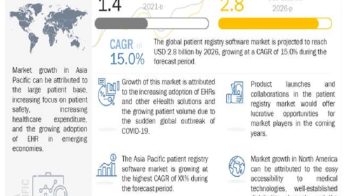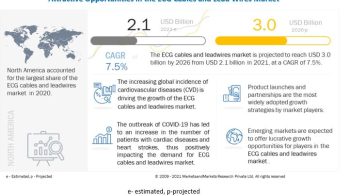In the last decade, the next-generation sequencing (NGS) market has witnessed significant technological advancements and robust product developments. The global NGS market is projected to register a CAGR of 20.5% from 2017 to 2022. Geographically, this market has been analyzed into four segments – North America, Europe, Asia-Pacific, and the Rest of the World (RoW).
In 2017, North America is expected to account for the largest share of the market due to factors such as favorable business environment, government support through funds for genomics research, continuous developments in sequencing technologies, growing research on cancer & inherited rare diseases, and a strong presence of key players. However, the Asia-Pacific region is expected to register the highest CAGR during the forecast period. Growth in this market is fueled by increasing government efforts to raise the standard of healthcare accompanied by government funding for translational research, increasing research initiatives, and the rising partnerships & collaborations among market players.
The major players in the global market are Illumina, Inc. (U.S.), Thermo Fisher Scientific Inc. (U.S.), QIAGEN N. V. (Germany), Pacific Biosciences of California, Inc. (U.S.), BGI (China), Oxford Nanopore Technologies, Ltd. (U.K.), PerkinElmer, Inc. (U.S.), GATC Biotech AG (Germany), Agilent Technologies, Inc. (U.S.), Roche Holding AG (Switzerland), Macrogen, Inc. (South Korea), and Eurofins Scientific (Luxembourg).
The key players in this market are focusing on strengthening their position in emerging markets by mainly adopting inorganic growth strategies such as agreements and partnerships. For instance, in September 2016, Agilent Technologies, Inc. (U.S.) signed an agreement with Burning Rock, one of the major companies in China focused on the development of DNA sequencing-based cancer diagnostics. Under the terms of this agreement, Burning Rock gained rights to develop cancer diagnostics in China on Agilent’s SureSelect target enrichment system. Additionally, in July 2015, Pacific Biosciences (U.S.) partnered with Macrogen Inc. (South Korea), a South Korea-based genomic services provider, to name it a PacBio Certified Service Provider under the PacBio Certified Service Provider Program. Under this program, customers receive highest-quality genetic analysis services using PacBio technology. Furthermore, in June 2015, Illumina, Inc. (U.S.) partnered with Pensabio (Brazil) for the supply of its sequencing platforms and solutions in Brazil.
In addition, emerging markets such as China, India, Brazil, and Mexico are expected to offer significant growth opportunities for market players owing to the rising number of conferences and increasing government funding for translational research in these emerging countries. For instance, in March 2016, the Chinese government announced the China Precision Medicine Initiative (PMI), a USD 9.2-billion (CNY 60 billion) project. This project focuses on sequencing whole genomes of around 100 million people or more. Similar, in February 2014, Department of Biotechnology, India funded the training program, organized by Bioinformatics Center, Indian Institutes of Spices Research, for NGS data analysis and annotation of scientists and researchers.

